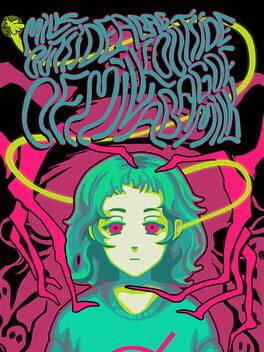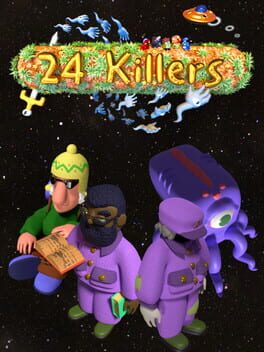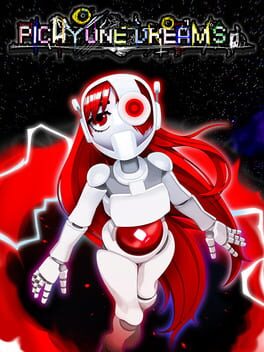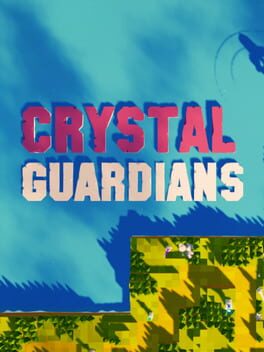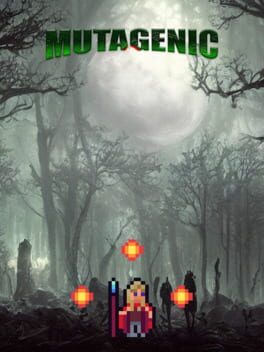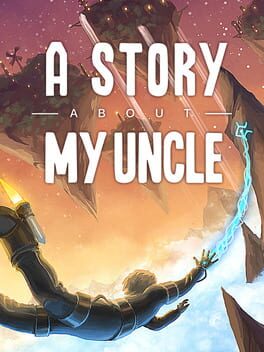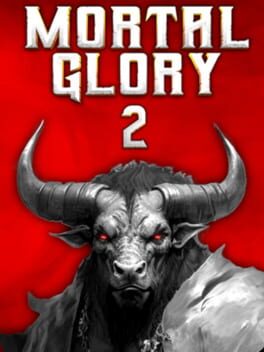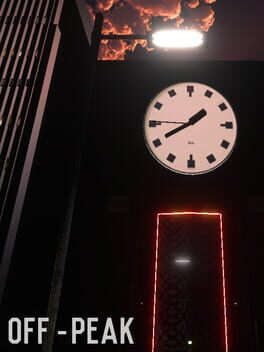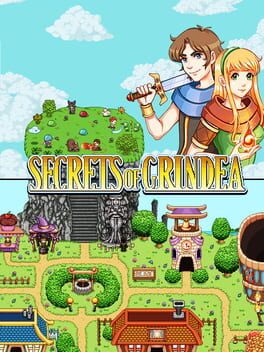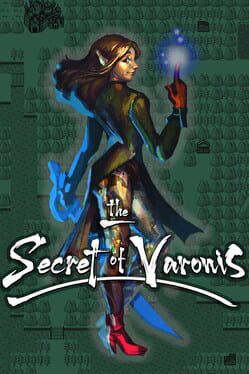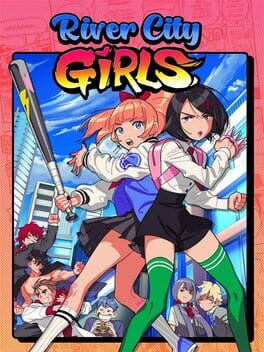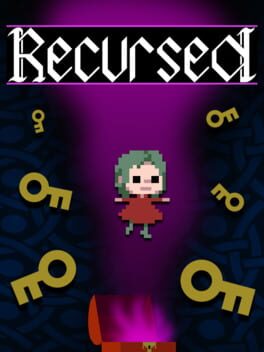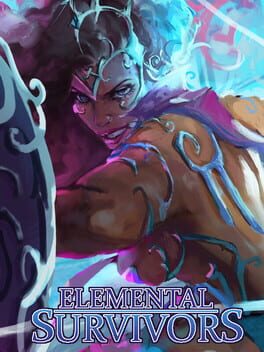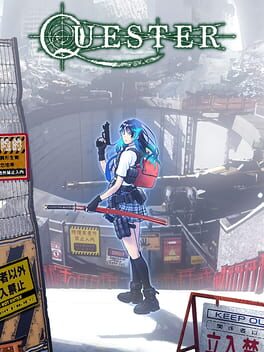jademonkey
2024
I didn't play Dragon's Dogma until the PC release of Dark Arisen, but, after a rocky start, it ended up becoming one of my favorite games of all time. I came into Dragon's Dogma II with high expectations, and left with mixed feelings.
I was going to write a big review going into depth on my thoughts, but I just don't want to spend any more time on the game right now, so I'll just write out some of my thoughts off the cuff.
None of the first games problems were fixed, and the conveniences added in Dark Arisen (e.g. eternal ferrystone) are absent as well.
The story lost its fun campiness, but still failed to deliver a solid narrative. Player and NPC motivations needed way more exploration.
My favorite vocations (strider, ranger, assassin) don't really exist this time around and that was a big bummer. Augments are less effective now, which is also a bummer. Combat is still a lot of fun, though.
The exploration itself is good, but travel can be an obnoxious slog. It's a bit baffling that Itsuno was insulting games with fast travel for being uninteresting, but his idea of interesting travel is fighting the same five enemy types every 10 feet. I think a lot of my negative feelings toward the game come from built up annoyance about the travel wasting my time.
The quest design was straight up bad. More clear writing would have gone a long way, but there were some serious missed opportunities to have taverns and the fortune teller give hints for quests. I don't need map markers, but I also don't want to deal with moon logic in a game this big. Undercover quests in particular feel out of place, as they did in the first game.
To sum up my feelings, it's a fun action and exploration game, but everything outside of that is either subpar or actively frustrating. I think I had my hopes set too high. If there's a big DLC/expansion at some point, I'll come back and give it another go. I'll probably include some mods to reduce the tedium the second time around, though. I didn't play the first game before Dark Arisen, and maybe I wouldn't have liked it if I had.
I was going to write a big review going into depth on my thoughts, but I just don't want to spend any more time on the game right now, so I'll just write out some of my thoughts off the cuff.
None of the first games problems were fixed, and the conveniences added in Dark Arisen (e.g. eternal ferrystone) are absent as well.
The story lost its fun campiness, but still failed to deliver a solid narrative. Player and NPC motivations needed way more exploration.
My favorite vocations (strider, ranger, assassin) don't really exist this time around and that was a big bummer. Augments are less effective now, which is also a bummer. Combat is still a lot of fun, though.
The exploration itself is good, but travel can be an obnoxious slog. It's a bit baffling that Itsuno was insulting games with fast travel for being uninteresting, but his idea of interesting travel is fighting the same five enemy types every 10 feet. I think a lot of my negative feelings toward the game come from built up annoyance about the travel wasting my time.
The quest design was straight up bad. More clear writing would have gone a long way, but there were some serious missed opportunities to have taverns and the fortune teller give hints for quests. I don't need map markers, but I also don't want to deal with moon logic in a game this big. Undercover quests in particular feel out of place, as they did in the first game.
To sum up my feelings, it's a fun action and exploration game, but everything outside of that is either subpar or actively frustrating. I think I had my hopes set too high. If there's a big DLC/expansion at some point, I'll come back and give it another go. I'll probably include some mods to reduce the tedium the second time around, though. I didn't play the first game before Dark Arisen, and maybe I wouldn't have liked it if I had.
Milk Oustide... offers a very interesting look into the life and thoughts of a late-teens girl suffering from serious mental illness and trauma. You play as a sort of self-talk, inner voice of the protagonist, generally representing the more rational side of her thoughts. Sometimes you are presented with only irrational choices, though. It creates a very interesting dynamic where you're both playing as the protagonist and not; trying to help her cope but sometimes not able to. It's a clever framing that captures the hopelessness the protagonist can experience at times. I enjoyed the metatextual element of the main character viewing you as a person playing a visual novel/point and click game.
The biggest selling point is perhaps the absolutely unique atmosphere. The art does an excellent job of shifting to match the mental state of the protagonist. The color palette, detail, and even overall style change between many of the scenes in the game to create this effect. The music was similarly on point in creating the feelings of dread and joy that the protagonist could quickly bounce between. There are a couple of tracks in the game that would fight right in on an atmospheric doom metal album (e.g. Sunn O))) ), which fit the themes perfectly and was very cool to hear in a video game.
My main criticism is just that I wanted a bit more. The entire game takes place over the course of the main character getting ready for bed, and takes 1-2 hours to play, depending on how many endings you go for. Even combined with the original game and its 30 minute runtime, it's just not quite enough time to really get to get to know and empathize with the protagonist to the degree I wanted. However, that doesn't keep the Milk duology from being a worthwhile and unique way to spend an evening.
The biggest selling point is perhaps the absolutely unique atmosphere. The art does an excellent job of shifting to match the mental state of the protagonist. The color palette, detail, and even overall style change between many of the scenes in the game to create this effect. The music was similarly on point in creating the feelings of dread and joy that the protagonist could quickly bounce between. There are a couple of tracks in the game that would fight right in on an atmospheric doom metal album (e.g. Sunn O))) ), which fit the themes perfectly and was very cool to hear in a video game.
My main criticism is just that I wanted a bit more. The entire game takes place over the course of the main character getting ready for bed, and takes 1-2 hours to play, depending on how many endings you go for. Even combined with the original game and its 30 minute runtime, it's just not quite enough time to really get to get to know and empathize with the protagonist to the degree I wanted. However, that doesn't keep the Milk duology from being a worthwhile and unique way to spend an evening.
2023
The style is great, the music is great, and there's an undeniable charm to the character interactions. I can see why a lot of people love it, but it never fully clicked with me. Not fully clicking with a game isn't a big problem though -- I can enjoy and appreciate art that isn't quite my thing and come away richer for it.
Unfortunately, I simply didn't enjoy the moment to moment gameplay. Most of the 'minigames' and interactions were just a bit clumsy and annoying to me. Towards the end of the game, you have to gather quite a bit of resources, and, even understanding how to do it well, it felt unnecessarily grindy. I would have enjoyed this more as a point and click or walking simulator, to be honest.
I really wanted to like the game and strung myself along for about 6 hours before deciding that it's just not for me. That said, I'm happy to have had the experience and given some money to an indie dev who made a passion project, and I'm glad that most people who play it seem to click strongly with it.
Unfortunately, I simply didn't enjoy the moment to moment gameplay. Most of the 'minigames' and interactions were just a bit clumsy and annoying to me. Towards the end of the game, you have to gather quite a bit of resources, and, even understanding how to do it well, it felt unnecessarily grindy. I would have enjoyed this more as a point and click or walking simulator, to be honest.
I really wanted to like the game and strung myself along for about 6 hours before deciding that it's just not for me. That said, I'm happy to have had the experience and given some money to an indie dev who made a passion project, and I'm glad that most people who play it seem to click strongly with it.
2023
What a cool game. The core gameplay is a surreal outer-space take on the Vampire Survivors formula, though it asks a bit more of the player than most entries in the genre. This is punctuated with straight up bullet-hell boss fights. Each boss fight is preceded by a bizarre conversation between the hero and the boss that generally establishes a bit of lore and personality. Beating a boss unlocks a Yume Nikki-style dream-horror story segment. Upping the difficulty and tying in a story with some rather compelling themes does a lot to elevate the genre.
This is further bolstered by an absolutely killer breakcore soundtrack that accentuates the stress of playing a bullet hell while maintaining the surreal feeling the rest of the game sets.
It took me a little over 5 hours to get my first victory, and I'll definitely be back for more!
This is further bolstered by an absolutely killer breakcore soundtrack that accentuates the stress of playing a bullet hell while maintaining the surreal feeling the rest of the game sets.
It took me a little over 5 hours to get my first victory, and I'll definitely be back for more!
2024
Very fun roguelite tower defense games. The basic mechanics are similar to Rogue Tower, but the quality just feels so much higher across the board here.
You improve towers by equipping items that you randomly find over the course of the run. Getting the right items is really important to winning and there's only so much you can do to adjust to the items you do find, so it feels a bit more luck based than I'd prefer. Of course, roguelites need a bit of a luck element, so it's not the end of the world.
There's a large metaprogression tree, but for some reason respec'ing costs half of your experience. I'll never understand why you'd want to curb experimentation in a game of this sort.
Anyway, complaints aside, the basic gameplay is on point. Worth a look if you are a tower defense fan.
You improve towers by equipping items that you randomly find over the course of the run. Getting the right items is really important to winning and there's only so much you can do to adjust to the items you do find, so it feels a bit more luck based than I'd prefer. Of course, roguelites need a bit of a luck element, so it's not the end of the world.
There's a large metaprogression tree, but for some reason respec'ing costs half of your experience. I'll never understand why you'd want to curb experimentation in a game of this sort.
Anyway, complaints aside, the basic gameplay is on point. Worth a look if you are a tower defense fan.
2022
A survivors-like with Path of Exile style builds. It's alright, but having deep builds and persistent equipment loses out on some of the flexibility and run-to-run excitement you expect from a survivors-like. I hit a point where I'd need to grind a bit for better equipment and just don't really feel like doing that.
I'll check back at some point in the future and see if it's more appealing then. Not a bad use of a dollar as it is, though.
I'll check back at some point in the future and see if it's more appealing then. Not a bad use of a dollar as it is, though.
I don't play many platformers these days, much less first person platformers, so A Story About My Uncle (ASAMU) was a bit of a step out of my comfort zone. I'd heard it mentioned on a couple of video game essay type youtube channels and figured I'd give it a go. It didn't blow my socks of it, but it was a neat a experience.
The gameplay is entirely focused around the mobility you get from your power suit -- a couple types of big jump, some grappling, and, later on, a boost. Using a combination of these abilities, you go from one checkpoint to the next, figuring out how to grapple-parkour your way through surprisingly hard challenges. There are no enemies or anything like that to worry about; the environment is challenge enough. The physics and movement felt really nice. That said, at times, I struggled to determine when an object would be in range to grapple, which lead to some annoying falls. Of course, there was almost always a checkpoint nearby, so it wasn't a big deal.
I loved the tone and environments of ASAMU. There's a great larger-than-life, otherworldly adventure, bed-time-story feel to it that resonated with me. While I'm actively in the "linear game are usual better" camp, I wouldn't have minded the game being a bit more open and exploration focused. As it is, you're generally going directly from A to B, with lots of checkpoints and high difficulty, which I found to be a bit at odds with the overall tone. Easier exploration sequences would have served to break up the challenge as well. There were a few areas in the game where every inch felt hard fought, to the point of tipping past rewarding and into frustrating.
There wasn't a whole lot of story to the game, but what was there was endearing. The voice acting felt a bit odd, with the cadence of delivery feeling particularly off, but it wasn't enough to break me out of the mood they were setting.
ASAMU is quite short, clocking in at around 3 hours. I think that was the perfect length, though, given the linearity and consistency of challenge.
The gameplay is entirely focused around the mobility you get from your power suit -- a couple types of big jump, some grappling, and, later on, a boost. Using a combination of these abilities, you go from one checkpoint to the next, figuring out how to grapple-parkour your way through surprisingly hard challenges. There are no enemies or anything like that to worry about; the environment is challenge enough. The physics and movement felt really nice. That said, at times, I struggled to determine when an object would be in range to grapple, which lead to some annoying falls. Of course, there was almost always a checkpoint nearby, so it wasn't a big deal.
I loved the tone and environments of ASAMU. There's a great larger-than-life, otherworldly adventure, bed-time-story feel to it that resonated with me. While I'm actively in the "linear game are usual better" camp, I wouldn't have minded the game being a bit more open and exploration focused. As it is, you're generally going directly from A to B, with lots of checkpoints and high difficulty, which I found to be a bit at odds with the overall tone. Easier exploration sequences would have served to break up the challenge as well. There were a few areas in the game where every inch felt hard fought, to the point of tipping past rewarding and into frustrating.
There wasn't a whole lot of story to the game, but what was there was endearing. The voice acting felt a bit odd, with the cadence of delivery feeling particularly off, but it wasn't enough to break me out of the mood they were setting.
ASAMU is quite short, clocking in at around 3 hours. I think that was the perfect length, though, given the linearity and consistency of challenge.
2024
Mortal Glory 2 is a roguelite tactical RPG in a gladiator setting. It's very directly influenced by Slay the Spire having a nearly identical map set up, but with combat being a grid-based tactical affair involving teams of (usually) up to 4 gladiators.
The execution here is solid. Buffs and debuffs are meaningful and useful. Knockback is a central mechanic. There's plenty of field effects. Your gladiators can be a variety of races, each giving an active ability that doesn't cost a turn to use. These are mostly fairly powerful, so they do enough to differentiate the races. Each unit can learn up 4 abilities on top of this, and freely increase their strength, agility, wisdom, and vitality. There's no classes, so you can end up having things like a tanky self-healing troll focused on summoning magic.
I've played 2 runs so far with a play time of 8 hours. I take my time in strategy games, but those are some chunky runs. Without pumping up difficulty settings, I've not found the game that hard so far, but I can imagine defeat will be frustrating if that's the result after 3 hours in a run. On the other hand, the long runs give a lot of time to develop and enjoy your team of gladiators.
It's a very low budget indie game and the presentation reflects that fact. Everything is perfectly readable, though, so the simple graphics and sounds didn't really have a negative impact on my enjoyment. I believe it uses some music packs I've heard elsewhere, but they're appropriate for the game, so that's not a big deal to me.
Overall, I'd say it's a good package and nicely scratches the tactical RPG itch without asking for 80 hours of your time. Definitely worth checking out if that's something that appeals to you.
The execution here is solid. Buffs and debuffs are meaningful and useful. Knockback is a central mechanic. There's plenty of field effects. Your gladiators can be a variety of races, each giving an active ability that doesn't cost a turn to use. These are mostly fairly powerful, so they do enough to differentiate the races. Each unit can learn up 4 abilities on top of this, and freely increase their strength, agility, wisdom, and vitality. There's no classes, so you can end up having things like a tanky self-healing troll focused on summoning magic.
I've played 2 runs so far with a play time of 8 hours. I take my time in strategy games, but those are some chunky runs. Without pumping up difficulty settings, I've not found the game that hard so far, but I can imagine defeat will be frustrating if that's the result after 3 hours in a run. On the other hand, the long runs give a lot of time to develop and enjoy your team of gladiators.
It's a very low budget indie game and the presentation reflects that fact. Everything is perfectly readable, though, so the simple graphics and sounds didn't really have a negative impact on my enjoyment. I believe it uses some music packs I've heard elsewhere, but they're appropriate for the game, so that's not a big deal to me.
Overall, I'd say it's a good package and nicely scratches the tactical RPG itch without asking for 80 hours of your time. Definitely worth checking out if that's something that appeals to you.
2015
2015
I picked this up thinking it might scratch that Legend of Mana itch -- action RPG combat with lots of systems to play with. I should have looked into it a bit more, since it's not really that. It's a fairly straightforward Secret of Mana-style action RPG with a rather normal skill tree. There is a pet system, which is why I got my hopes up for something Legend of Mana-esque, but they just function as passive bonuses. Totally my fault for not doing enough research on that end. Still, I like action RPGs, so I didn't let that deter me.
Unfortunately, I really don't enjoy the writing. It has that very referential late 2000s internet humor that simply doesn't work for me. I find it to be a bit grating regularly, and it only made me laugh in a couple of spots.
This could all still be saved for me if the gameplay was excellent, but it was just alright. Certainly not bad, but the movement felt a bit stiff and I found most of the special abilities to be awkward to use or just not that exciting. I respecced a number of times, but just couldn't find a build that excited me.
The collectathon aspect of it is enjoyable and well done, if a bit grindy (as the games name alludes to). If I liked the combat a bit more, I could see hunting down all of the loot motivating me to complete the game.
All in all, it's not a terrible game, and I can see how some people may really enjoy it. I'm just having an 'ok' time at best, so after ~7 hours, I think I'll just move on.
Unfortunately, I really don't enjoy the writing. It has that very referential late 2000s internet humor that simply doesn't work for me. I find it to be a bit grating regularly, and it only made me laugh in a couple of spots.
This could all still be saved for me if the gameplay was excellent, but it was just alright. Certainly not bad, but the movement felt a bit stiff and I found most of the special abilities to be awkward to use or just not that exciting. I respecced a number of times, but just couldn't find a build that excited me.
The collectathon aspect of it is enjoyable and well done, if a bit grindy (as the games name alludes to). If I liked the combat a bit more, I could see hunting down all of the loot motivating me to complete the game.
All in all, it's not a terrible game, and I can see how some people may really enjoy it. I'm just having an 'ok' time at best, so after ~7 hours, I think I'll just move on.
The Secret of Varonis is a spiritual successor to the original Gameboy SaGa trilogy (aka Final Fantasy Legend), having originally grown out of a fan game. The mechanics are essentially a combination of the first two SaGa games, with a decent amount of modern quality of life thrown in. The story is very similar to the first couple of games, seeing you climb a tower, visit worlds, and fight gods, though it's more focused and fleshed out than what you'd expect from a SaGa game. I actually rather enjoyed it by the end. While there's nothing particularly new here, everything is just a bit bigger, better, and smoother to play than the old games, creating an experience that I think even modern JRPG fans without nostalgia would have a great time with.
2019
I loved River City Ransom growing up, so I put River City Girls on my wishlist as soon as it came out. Only took me 5 years to actually get around to it!
I'm glad I did get around to it, though. I had a great time with the game. I was really surprised by the quality of the presentation -- the animated scenes, character portraits, and manga scenes were all great. I absolutely loved the sound track, both the chiptunes and the vocal tracks. The humor also landed pretty well for me. Not laugh out loud funny, but I was always happy for another story scene.
The overall structure of the game was what I hoped. You have your traditional River City open roam, with levels, money for food that heals and provides stats, plenty of goons to beat up, and weapons to grab as you go. All good stuff.
Unfortunately, there were some misses on the combat for me. It wasn't bad, but there were enough frustrating elements that it degraded the experience a bit. Enemies were pretty tanky and hard to air juggle, so there was a lot of stomping on them while they were on the ground and dodging their counters as they got up. Weapons ended up being a very slow option as well, since they almost always knock the enemy down on a single hit, which doesn't work well with the difficult air juggling. It was easy to accidentally pick up a weapon that an enemy dropped since that action was bound to light attack, so that was a minor annoyance as well. Grappling was mostly just a bad thing -- it provides no I-frames, so you're a sitting duck for the second it takes you to throw the enemy. It's easy to accidentally grapple an enemy you unexpectedly stun in a combo, which could be rather frustrating. I'm not sure if this was just user air, but I kept accidentally using the "power dab" (forward heavy attack) while trying to use my neutral heavy attack. It has a very long recovery, so it led to a lot of frustrating damage as well. Running is a double tap, which I had a bit of issues with as well, which could result in mispositioning or using the wrong attack. Not entirely sure if that's on me or if there were some detection issues, but I would have preferred it to be mapped some other way. It's not a big deal, but the accessories in the game were oddly bad as well -- I really don't care about a 5% damage boost against half of the enemies. I'm not going to notice that. None of these issues are huge, but taken together, they noticeably reduced my enjoyment of an otherwise solid beat 'em up combat system.
All that negativity aside, none of those issues really amounted to much in the way of problems for me. I took my time and kept plenty of food around to heal at all times, so I was never really in danger after the beginning sections of the game. I wasn't really here for a challenge, more just to soak up some vibes and beat down some dudes, so I don't think I minded it in the context of this game.
All in all, I really enjoyed my time with the game despite the annoyances with the combat and will likely swing back to River City Girls 2 later this year.
I'm glad I did get around to it, though. I had a great time with the game. I was really surprised by the quality of the presentation -- the animated scenes, character portraits, and manga scenes were all great. I absolutely loved the sound track, both the chiptunes and the vocal tracks. The humor also landed pretty well for me. Not laugh out loud funny, but I was always happy for another story scene.
The overall structure of the game was what I hoped. You have your traditional River City open roam, with levels, money for food that heals and provides stats, plenty of goons to beat up, and weapons to grab as you go. All good stuff.
Unfortunately, there were some misses on the combat for me. It wasn't bad, but there were enough frustrating elements that it degraded the experience a bit. Enemies were pretty tanky and hard to air juggle, so there was a lot of stomping on them while they were on the ground and dodging their counters as they got up. Weapons ended up being a very slow option as well, since they almost always knock the enemy down on a single hit, which doesn't work well with the difficult air juggling. It was easy to accidentally pick up a weapon that an enemy dropped since that action was bound to light attack, so that was a minor annoyance as well. Grappling was mostly just a bad thing -- it provides no I-frames, so you're a sitting duck for the second it takes you to throw the enemy. It's easy to accidentally grapple an enemy you unexpectedly stun in a combo, which could be rather frustrating. I'm not sure if this was just user air, but I kept accidentally using the "power dab" (forward heavy attack) while trying to use my neutral heavy attack. It has a very long recovery, so it led to a lot of frustrating damage as well. Running is a double tap, which I had a bit of issues with as well, which could result in mispositioning or using the wrong attack. Not entirely sure if that's on me or if there were some detection issues, but I would have preferred it to be mapped some other way. It's not a big deal, but the accessories in the game were oddly bad as well -- I really don't care about a 5% damage boost against half of the enemies. I'm not going to notice that. None of these issues are huge, but taken together, they noticeably reduced my enjoyment of an otherwise solid beat 'em up combat system.
All that negativity aside, none of those issues really amounted to much in the way of problems for me. I took my time and kept plenty of food around to heal at all times, so I was never really in danger after the beginning sections of the game. I wasn't really here for a challenge, more just to soak up some vibes and beat down some dudes, so I don't think I minded it in the context of this game.
All in all, I really enjoyed my time with the game despite the annoyances with the combat and will likely swing back to River City Girls 2 later this year.
2016
Recursed is easily one of the most clever puzzle games I've played. It takes a few ideas from computer science -- largely variable scope and the titular recursion, and makes them into an extremely fun puzzler with just the tiniest bit of platforming. The most basic concept is that each room of the game exists in a box. When you go into a box, everything in it is instantiated anew. So, if you need two keys in the box you are currently in, and have a box with a key in it, you go in and remove a key, drop it, then go back for another. From there, it introduces a few others tools dealing with scoping or, in other words, 'rules of existence'. For example, only one copy of an enchanted object exists. If you move it in a room, then that's where it'll be when you come back. If you take it out of a room, it won't be there again unless you bring it back. And so on. It then takes every one of these tools and asks you to take it figure out different logical extremes throughout the puzzles. Unironically, Recursed is all of the fun parts of an algorithms course, but packaged in a way that's cute and accessible, avoiding the need for any knowledge of mathematical notation, formalisms, and so on.
I found the game fairly challenging, but nothing was too extreme. That said, I'm a computer scientist, so my background had me well prepared for what Recursed asked of me. Even so, I think it's something that any puzzle fan can enjoy, as long as you're willing to stretch your mind in ways that very few others games ask you to. There were a few puzzles where I ended up taking notes on how to reach a certain state -- some of the set ups could be rather involved, and it was easy to end up in an unwinnable position. In fact, that's my only real criticism of the game: it could be frustrating to have to redo a 30 step process after making a mistake. Still, it wasn't so bad once I just started taking notes on the longer puzzles, and there really weren't too many of them.
I completed all of the regular courses, many of the (extremely cool) 'hidden routes', and got the main ending. I had a great time the whole way through, and will likely be back to find the 'hidden routes' I missed the first time through and play the side puzzles at some point. I consider Recursed to be among the all time greats of the Puzzle genre, and highly recommend it!
I found the game fairly challenging, but nothing was too extreme. That said, I'm a computer scientist, so my background had me well prepared for what Recursed asked of me. Even so, I think it's something that any puzzle fan can enjoy, as long as you're willing to stretch your mind in ways that very few others games ask you to. There were a few puzzles where I ended up taking notes on how to reach a certain state -- some of the set ups could be rather involved, and it was easy to end up in an unwinnable position. In fact, that's my only real criticism of the game: it could be frustrating to have to redo a 30 step process after making a mistake. Still, it wasn't so bad once I just started taking notes on the longer puzzles, and there really weren't too many of them.
I completed all of the regular courses, many of the (extremely cool) 'hidden routes', and got the main ending. I had a great time the whole way through, and will likely be back to find the 'hidden routes' I missed the first time through and play the side puzzles at some point. I consider Recursed to be among the all time greats of the Puzzle genre, and highly recommend it!
2023
The feel of the game isn't too bad for a Vampire Survivors-like. Unfortunately, the balance is so far off being reasonable that I don't think this will ever end up being a satisfying experience. There are many weapons, that, even when fully evolved and maxed (20 levels), are significantly outperformed by better weapons with only a handful of levels spent on them. Others, like Magic Missile Swarm, just frequently outright miss enemies. It makes the unlocking process repeatedly disappointing, and that's a substantial part of the fun in this sort of a game for me.
I like the concept, so I kept playing the game after running into a few of these issues hoping that it was just an oversight, but it was consistent. I don't like leaving negative reviews for early access indie games, but the issues here should have been obvious by just thinking about numbers for a second while coding. Otherwise, they should stick out very quickly with any level of playtesting. I'll check back for a major revision, but, barring that, you'd be better served playing any of a dozen better made games in this style.
I like the concept, so I kept playing the game after running into a few of these issues hoping that it was just an oversight, but it was consistent. I don't like leaving negative reviews for early access indie games, but the issues here should have been obvious by just thinking about numbers for a second while coding. Otherwise, they should stick out very quickly with any level of playtesting. I'll check back for a major revision, but, barring that, you'd be better served playing any of a dozen better made games in this style.
2023
This is a fun little dungeon crawler!
The battle system is solid. Each character has a number of AP to spend every turn. You set the abilities you want, and then combat plays out with autotargeting. The autotargeting was generally smart, so it allowed the game to move a bit faster will still allowing all of your characters to have multiple actions per turn. These actions were also interesting running the gamut of attacks, buffs, heals, debuffs, AoEs, attacks with debuffs, etc. Everything is useful -- stun and bleed played a big roll even on important boss fights for my team. Unfortunately, even with combat speed cranked all of the way up, things got a bit tedious by the end. I was browsing reddit as I waited for turns to play out in the last couple of zones.
I really enjoyed the equipment system in the game. Essentially, all of your abilities in combat are determined by the two weapons and one accessory each character can equip. Each piece of equipment is limited to certain classes and scales with a couple different stats, while sometimes providing new passives in addition to the active abilities. This made looting very exciting all game -- not only would numbers go up when you found a new weapon, but build variety would meaningfully change as well. An exciting loot system goes a long way to making a dungeon crawler fun!
The presentation was simple but effective. The controls for the UI were bafflingly weird, but they weren't too much of an impediment one I figured them out.
Another minor grip with the game is that the new members joining were typically far underlevelled, without any quick way of catching them up. I did switch one member out fairly late in the game, but it took hours for the new recruit to match up to the rest. It was worth it since she ended up being my best damage dealer, but it was needlessly annoying getting her caught up. Apparently New Game plus will allow you to start with a different team altogether, but I'm moving on for now at least.
Quester is a solid dungeon crawler, well worth a look if you like the genre.
The battle system is solid. Each character has a number of AP to spend every turn. You set the abilities you want, and then combat plays out with autotargeting. The autotargeting was generally smart, so it allowed the game to move a bit faster will still allowing all of your characters to have multiple actions per turn. These actions were also interesting running the gamut of attacks, buffs, heals, debuffs, AoEs, attacks with debuffs, etc. Everything is useful -- stun and bleed played a big roll even on important boss fights for my team. Unfortunately, even with combat speed cranked all of the way up, things got a bit tedious by the end. I was browsing reddit as I waited for turns to play out in the last couple of zones.
I really enjoyed the equipment system in the game. Essentially, all of your abilities in combat are determined by the two weapons and one accessory each character can equip. Each piece of equipment is limited to certain classes and scales with a couple different stats, while sometimes providing new passives in addition to the active abilities. This made looting very exciting all game -- not only would numbers go up when you found a new weapon, but build variety would meaningfully change as well. An exciting loot system goes a long way to making a dungeon crawler fun!
The presentation was simple but effective. The controls for the UI were bafflingly weird, but they weren't too much of an impediment one I figured them out.
Another minor grip with the game is that the new members joining were typically far underlevelled, without any quick way of catching them up. I did switch one member out fairly late in the game, but it took hours for the new recruit to match up to the rest. It was worth it since she ended up being my best damage dealer, but it was needlessly annoying getting her caught up. Apparently New Game plus will allow you to start with a different team altogether, but I'm moving on for now at least.
Quester is a solid dungeon crawler, well worth a look if you like the genre.

